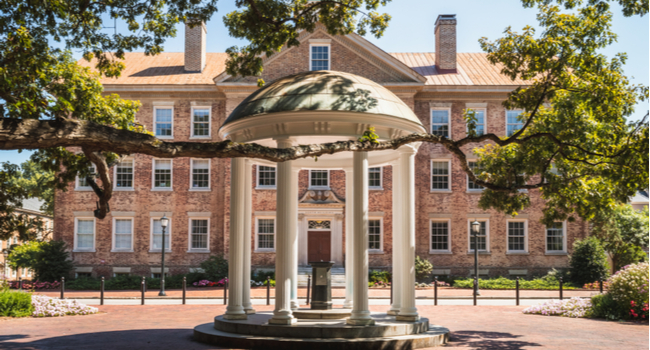
UNC Releases Federal Report Showing the University Underreported Annual Crime Numbers
The U.S. Department of Education concluded in August that UNC violated campus safety laws for years. The university decided to release those findings on Monday.
- By Sherelle Black
- November 19, 2019
University of North Carolina at Chapel Hill’s Interim Chancellor Kevin Guskiewicz released a federal report on Monday that detailed how the university has been inaccurately reporting the amount of crime on campus.
In a statement online, Guskiewicz said the report, which looked at crime and safety reporting issues between 2009 and 2016, cited several violations “in several areas including collecting, compiling and reporting crime statistics; defining campus geography to meet Clery Act criteria; issuing timely warnings; and including required information in annual security and fire safety reports.”
Although federal investigators released its final determinations in August, the university did not decide to release the report until Monday.
"My entire leadership team and I are deeply committed to ensuring that our campus, as well as the surrounding areas, are safe for our students, faculty, staff and visitors," Guskiewicz said. "We will continue to invest in resources and training to ensure the university has the right tools and procedures to accurately prevent, respond to and report crimes and issue timely notice of any known safety threats to the campus community."
WRAL reported federal investigators have been investigating the university since 2013 when four UNC students and a former administrator filed a federal complaint stating the UNC-Chapel Hill was underreporting sex assaults.
The news outlet reported the Department of Education found that the university excluded several areas from its data such as Granville Towers and several fraternity and sorority houses.
In a tweet,Guskiewicz said “The shortcomings noted in the review are extremely concerning, disappointing and do not meet our high standards. We can and must do more.”
Since the university has been found in violation of the Clery Act, which requires institutions to disclose crime statistics, Clery Act expert S. Daniel Carter told The Daily Tar Heel, the university faces fines.
“He said a maximum civil fine penalty is required for each violent crime an institution omits from any annual report during a compliance review period. UNC’s annual security reports from 2015 to 2017 omitted four violent crimes, which would translate to a nearly $185,000 fine, with crimes omitted from the 2015 report running $35,000 per and any after that at $57,317.”
About the Author
Sherelle Black is a Content Editor for the Infrastructure Solutions Group at 1105 Media.